Praying with Jayber
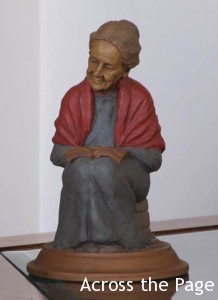 I’ve been rereading Wendell Berry’s Jayber Crow. I’m bearing down on the end, but I wanted to quote this passage here (though it’s long) because it seems important and is indisputably beautiful.
I’ve been rereading Wendell Berry’s Jayber Crow. I’m bearing down on the end, but I wanted to quote this passage here (though it’s long) because it seems important and is indisputably beautiful.
It concerns prayer, and Jayber’s ongoing effort to understand what happens in prayer. It expresses some questions and feelings that probably all of us who pray have felt at one time or another.
What answer can human intelligence make to God’s love for the world? What answer, for that matter, can it make to our own love for the world? If a person loved the world — really loved it and forgave its wrongs and so might have his wrongs forgiven — what would be next?
And so how was a human to pray? I didn’t know, and yet I prayed. I prayed the terrible prayer: “Thy will be done.” Having so prayed, I prayed for strength. That seemed reasonable and right enough. As did praying for forgiveness and the grace to forgive. I prayed unreasonably, foolishly, hopelessly, that everybody in Port William might be blessed and happy — the ones I loved and the ones I did not. I prayed my gratitude.
The results, perhaps, were no more than expectable. I found, as I had always found, that I had strength, but never quite as much as I needed — or, anyhow, wanted. I felt that I might be partly forgiven, as I was partly forgiving; Port William continued to be partly blessed and happy, as before, and partly not; I was as grateful as I said I was. And so perhaps my prayers were partly answered; some perhaps were answered entirely. Perhaps all the good that ever has come here has come because people prayed it into the world. How would a person know? How could divine intervention happen, if it happens, without looking like a coincidence or luck? Does the world continue by chance (since it can hardly do so by justice) or by the forgiveness and mercy that some people have continued to pray for?
But why ask? It was not just a matter of cause and effect. Prayers were not tools or money…
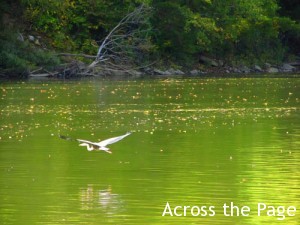
Jayber is so tentative here, so full of questions. Yet he has committed himself to pray and to love — the two are so closely related as to seem like flip sides of the same coin — and from this point on he gives himself to the effort. Despite the unsureness he expresses about how measurably God answers, he is himself changed.
A little later, Jayber continues,
Prayer is like lying awake at night, afraid, with your head under the cover, hearing only the beating of your own heart. It is like a bird that has blundered down the flue and is caught indoors and flutters at the windowpanes. It is like standing a long time on a cold day, knocking at a shut door.
But sometimes a prayer comes to you that you have not thought to pray, yet suddenly there it is and you pray it. Sometimes you just trustfully and easily pass into the other world of sleep. Sometimes the bird finds that what looks like an opening is an opening, and it flies away. Sometimes the shut door opens and you go through it into the same world you were in before, in which you belong as you did not before.
I find myself wishing for a little more assurance in what Jayber says. He doesn’t express any certainty that God answers his prayers. Yet in a way that’s what makes the passage appealing. I think it’s true to experience in this way. Answered prayer can’t be “proven” — it isn’t “tools or money.” If Jayber didn’t believe in its efficacy, he wouldn’t find himself drawn into a life of prayer. And throughout the flow of requests and agonies and offerings in prayer, Jayber is changed. He becomes increasingly taken up by the effort to love, and to “know in his heart” God’s love for the world. This prayer God surely answers; we can see it as we read.
I hope and believe this is true for all of us who pray.
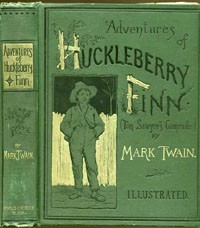
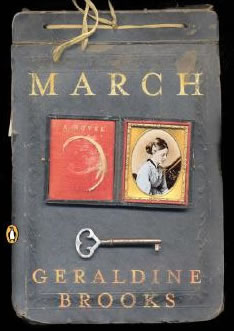
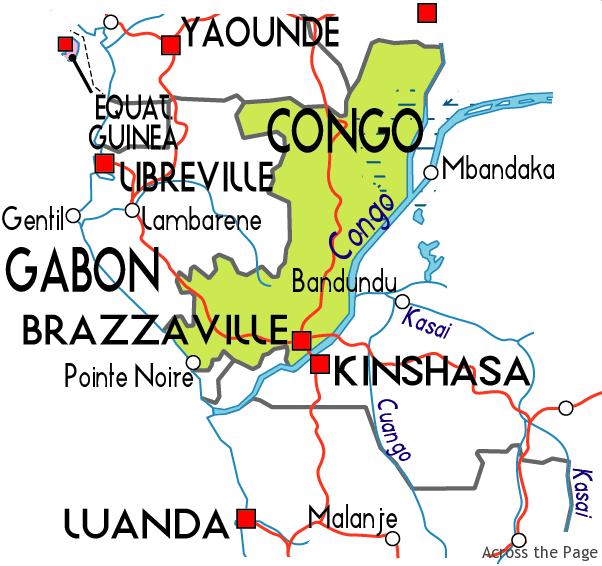
6 Comments
Barbara H.
I don’t think I have ever thought of prayer as that tentative, I guess because I have seen answers to it both in my life and that of others, and because of all the Biblical promises about prayer, I know God is hearing and answering in some way even though it may not be the time and way I originally wanted. There are some long-term prayers where there doesn’t look like any headway is being made, but the end of Hebrews 11 speaks of those who dies in faith not having received the promises (at least in their lifetime). I think what unbelievers might call coincidence or luck is at least some times God sending His goodness on the just and the unjust in order to try to get their attention and woo them to Himself.
Janet
I wouldn’t express myself as tentatively as Jayber does either. But I’ve had some of those questions along the line of, “I wonder if this is an answer to prayer, or just something that would have happened anyway.”
It’s interesting how much our faith shapes our conclusions about things. Just today someone was telling me that the biblical flood may have been a layer of moisture in the atmosphere that was hovering there, then collapsed to the earth. It’s one theory, of which there may be some scientific evidence.
I was thinking of how that could go either way. Someone who didn’t believe the Bible would say, “See? There was no supernatural event. It was just something natural that was going to happen anyway.” A believer would say, “See? This physical evidence makes the biblical story even more plausible.” They interpret the evidence differently based on their assumptions.
Prayer is similar. I tend to see various events as answers to prayer, because I pray about things that I care about. I know that feeling Jayber has of having something occur to me in prayer that has never occurred in another context when thinking about some issue. I believe deeply that God answers my prayers, both specifically and by molding me over the long haul through the interaction with Him. But I couldn’t “prove” these things to a skeptic. I think that the reason I like this passage is that Jayber is exploring this idea of “real” vs. “proven,” and he’s coming to the conclusion that his experience in prayer is real.
Ruth
I agree with you that his uncertainty makes the passage more appealing. I have wrestled with many of the same issues, and I appreciate the way Jayber commits himself in spite of not having all the answers. I am pretty sure I will never have all the answers but I find myself less and less fazed by that. I don’t have to explain it all.
Amy @ Hope Is the Word
I just love this book. And that’s all I have to add to this conversation. :-)
Jess
I am so glad you reminded me of this passage. The way that Wendell Berry wrestles theologically is one of my favorite components of the book. I loved his description of the pastor, and the church service on Sunday. Deeply resonating.
I like your response in the comment above, too.
Janet
I love the way he wrestles, too — and makes me wrestle. He helps me to see the world of church and faith from a whole different perspective.